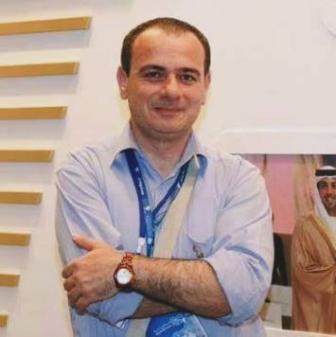
On November 9, 2017, the Working Group on Arbitrary Detention (WGAD) published an Opinion calling for the immediate release of Taysir Salman, a 44-year-old Jordanian journalist who has been detained in the UAE since 2015 – during which time he was disappeared for 80 days – as a result of a Facebook post.
In Opinion No. 58/2017, the WGAD qualified Salman’s detention as arbitrary as it resulted from him exercising his right to freedom of expression. The UN experts also expressed concern over the UAE using its Cybercrime Law to criminalise peaceful dissent.
Sentenced to three years in prison for criticising the UAE
On December 13, 2015, Salman – who was living in the UAE at the time – was arrested without a warrant and brought to an unknown location. He was held in secret for 80 days, during which time he was denied the right to contact his family, his lawyer, and the Jordanian consulate.
When he was allowed to inform his relatives of his whereabouts on February 18, 2016, he reported having been continuously interrogated about a post he published on Facebook during Israel’s 2014 Operation Protective Edge. The post criticised the lack of support from the UAE and other countries for the people under siege in Gaza.
It was only a year later, on October 27, 2016, that he was informed of the charges against him, which included publishing information online with the “intent to ridicule or damage the reputation, prestige or stature of the State” under article 29 of the Cybercrime Law.
On March 15, 2017, he was sentenced by the Abu Dhabi Federal Appeals Court to three years in prison and a fine of 500,000 Dirhams (around 130,000 US dollars).
UN experts call for Salman’s immediate release
In its Opinion, the Working Group considered Salman’s detention to be void of any legal basis as he was not informed of the charges against him until almost one year after his arrest.
Furthermore, the WGAD considered Salman’s imprisonment arbitrary as it was carried out in violation of fundamental legal safeguards. Throughout Salman’s detention, and up until his trial, he was denied the right to be visited by his family and his lawyer, effectively depriving him of the right to legal counsel.
Moreover, the UN experts expressed particular concern over the use of incommunicado detention by the Emirati security forces, recalling that this practice puts detainees at risk of torture, and can also be considered torture in itself. It could, therefore, constitute a violation of the UN Convention against Torture (UNCAT), which the UAE ratified in 2012.
The Working Group further stressed that by holding Salman incommunicado, the Emirati authorities violated his right as a foreign national to consular protection. Representatives of the Jordanian embassy were able to visit Salman in prison only at a later stage of his detention, and only after exerting great efforts to persuade the Emirati authorities.
Finally, the UN experts noted that Salman’s detention clearly resulted from him exercising his right to freedom of expression. They voiced concern over the use of the Cybercrime Law in Salman’s case, a law which is in itself “at odds with the relevant norms of international law.” The WGAD stressed that due to its “vagueness” and its “overly broad application”, this law is used in practice to curb the right to freedom of expression and criminalise peaceful criticism in the UAE.
Qualifying Salman’s detention as arbitrary on these grounds, the UN experts urged the Emirati authorities to immediately release him. They also called upon the UAE to amend the Cybercrime Law to bring it into compliance with international norms in order to protect the right to freedom of expression in the country.
For more information or an interview, please contact media@alkarama.org (Dir: +41 22 734 1008).
